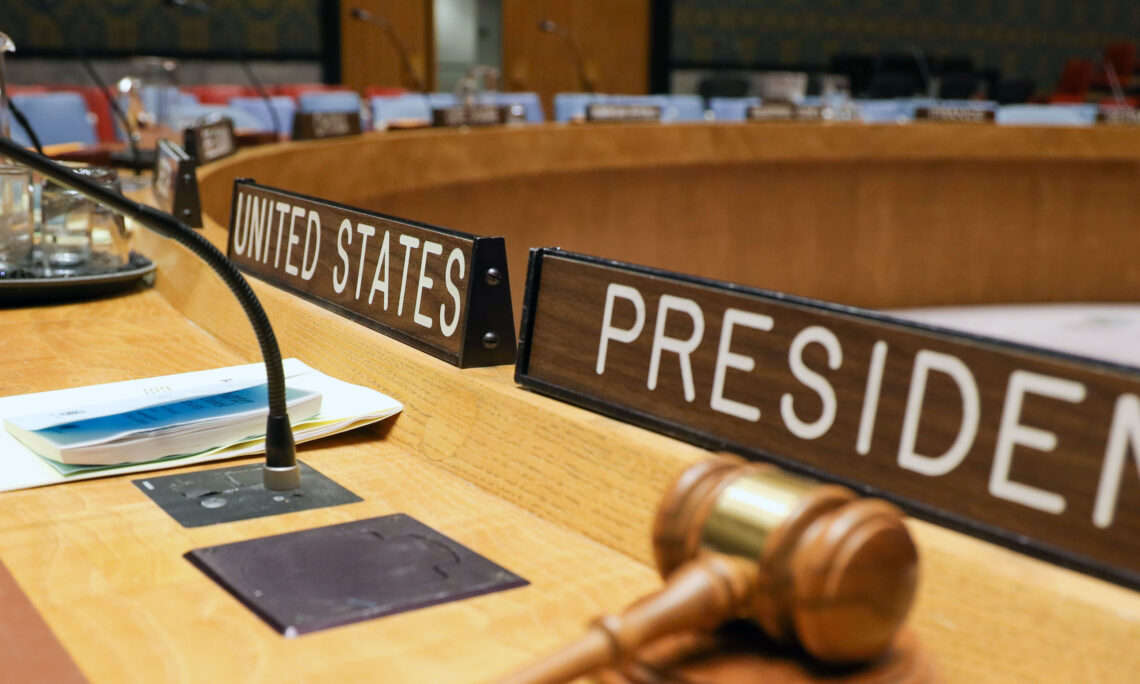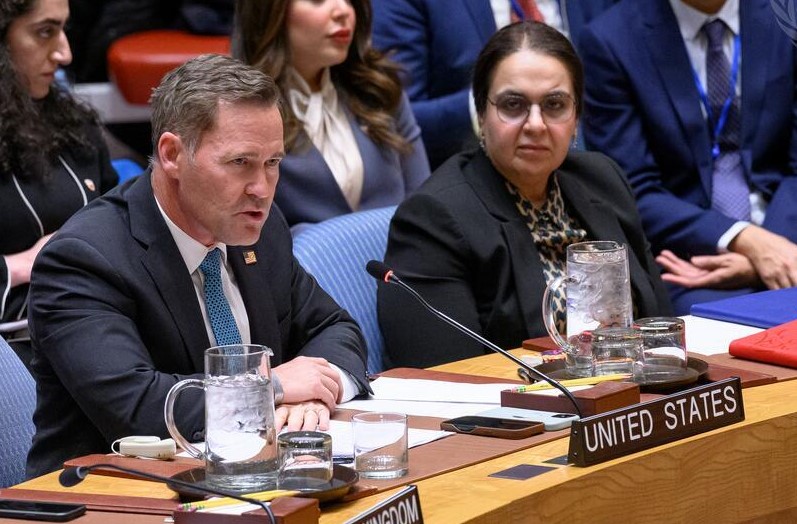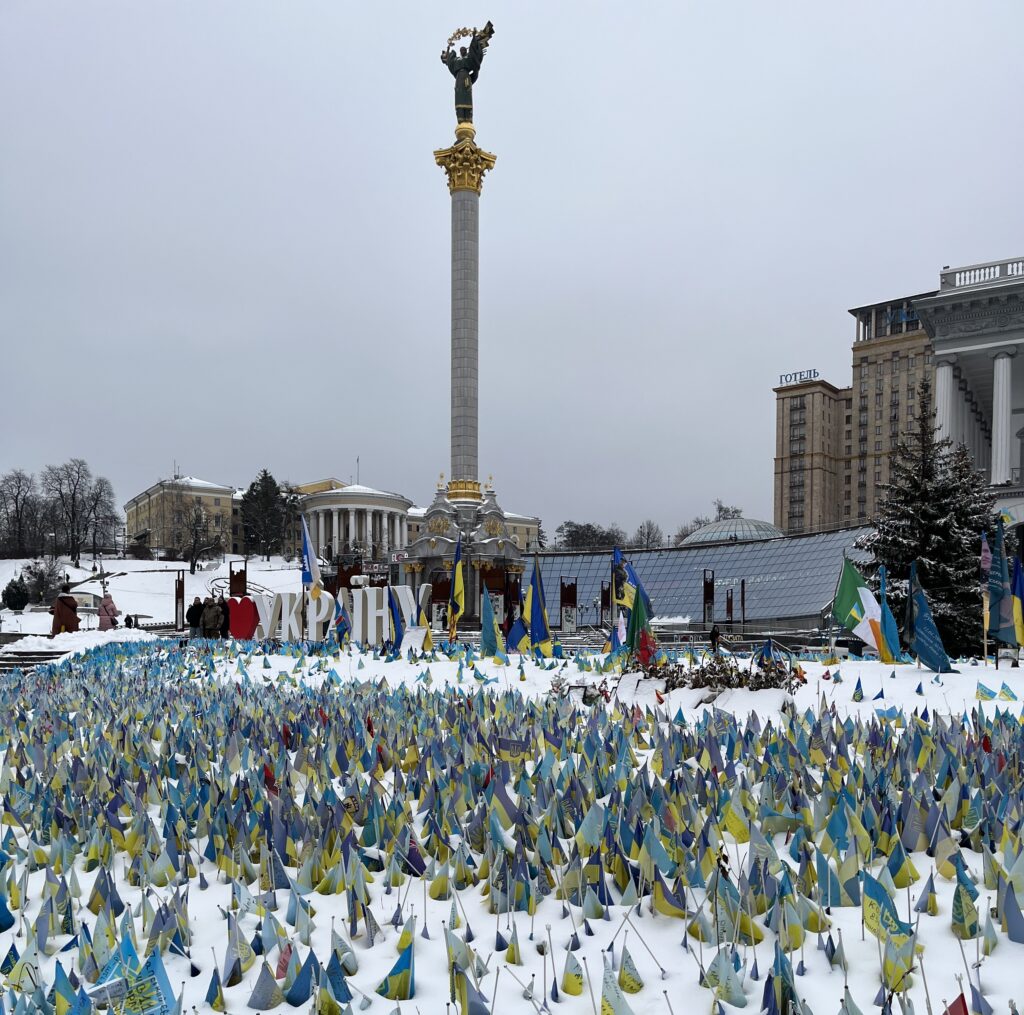This December, the U.S. assumes the rotating presidency of the UN Security Council.
In remarks that kicked off America’s tenure at the helm, U.S. Ambassador to the UN Linda Thomas-Greenfield underscored two signature initiatives the U.S. plans to undertake while in the president’s seat. The first, a briefing on women, peace and security, will emphasize intergenerational dialogue among women peacebuilders and the essential role of women throughout the peace and security architecture.
Artificial intelligence will also take center stage later in the month, focusing on the role of AI to foster international security. This builds on the successful U.S.-led effort to pass a resolution in the UN General Assembly addressing AI governance. Other issues anticipated during Ambassador Thomas-Greenfield’s hold on the gavel include food security, the ongoing wars in Gaza and Ukraine and – most immediately as of this writing – an understanding of next steps in the surprise ousting of long-time Syrian president and dictator, Bashir al-Assad.
While all these efforts are equally important, the role of Security Council president provides other opportunities to advance U.S. values on the world’s largest stage.
Here’s what the presidency means – and how the U.S. can use its influence to shape global security.
Roles and Responsibilities of the President
Like many bodies and programs of the UN, the presidency of the Security Council rotates monthly among its 15 Member States, allowing each to influence global discourse on pressing security matters. Responsibilities include overseeing operations, managing workflow and chairing discussions on topics like conflicts, sanctions, peacekeeping operations and emerging threats to international security. The president ensures that all members have an opportunity to express their views through an inclusive and transparent decision-making process.
But far and away the most important aspect of leadership is the role that the Security Council president plays in setting the agenda for the Council and timing of votes. The impact of this agenda-determining role cannot be overstated.
During the last few terms of U.S. council leadership, for example, the U.S. used its position to condemn the coup in Myanmar, successfully passing a Council resolution that had the effect of accelerating humanitarian and security actions by UN agencies in the embattled country. The U.S. also elevated Iran’s human rights violations and pushed for the removal of the Islamic Republic from the UN Commission on the Status of Women. Thanks to America’s efforts and council platform, the UN Economic and Social Council (ECOSOC) backed the U.S. position, booting Iran from the Commission for the remainder of its 2022-2026 term – the first nation in history to experience expulsion from the body.
These successes have been possible because the Security Council president maintains a prerogative to organize thematic debates or special briefings on issues of particular interest, effectively turning our national values into international action.
What’s more, the presidency involves significant behind-the-scenes diplomacy, as they work with Council members, regional groups and relevant stakeholders to navigate complex political dynamics. While this quiet diplomacy is often decried as more talk than action, it’s important to underscore that talk is the very essence of the work to ensure “action” is measured and escalation is prevented. Maintaining a forum for engagement with adversaries and allies alike keeps dialogue open and addresses issues before they erupt into conflict.
Leaving a Powerful Mark on the Security Council
To be sure, the benefits of the presidency come with challenges, especially the delicate balance of national interests against the broader responsibilities of the UN’s preeminent body. Nevertheless, to preside over the UN Security Council is to hold a position of immense responsibility – shaping the Council’s work, facilitating cooperation among diverse members and providing leadership during times of global crises.
In this final month of the Biden presidency, we are watching with anticipation to see how the Administration’s UN Ambassador will use her Security Council presidency to leave a legacy.




